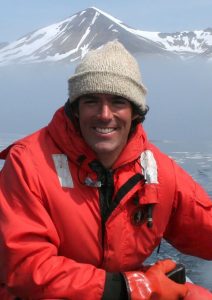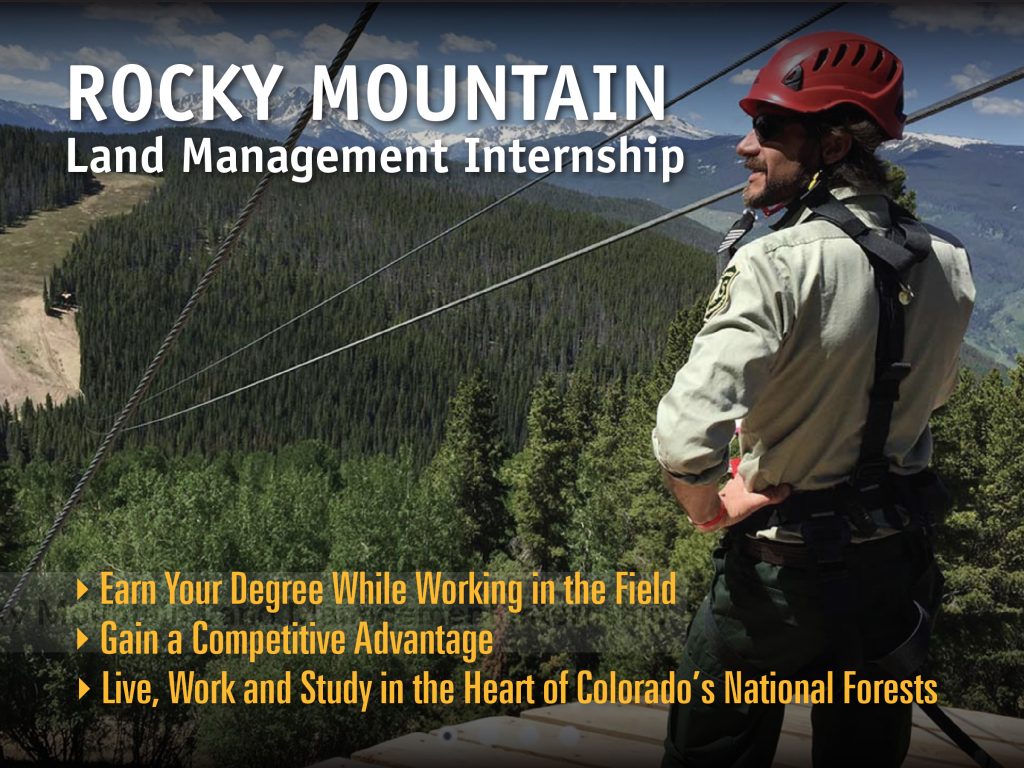
Nathan L. Stewart, Ph.D.
Professor, Ecosystem Science, Stewardship & Sustainability Studies970-870-4562 | nlstewart@coloradomtn.edu
Location: Steamboat Springs Campus
2020 CMC Steamboat Springs Faculty of the Year
Education
- Ph.D. in Biology from the University of Alaska Fairbanks
- B.A. in Biology from Carleton College, MN
Sustainability Studies Courses
- SUS 310, Ecology & Sustainability
- SUS 311, Integrated Sustainability Science
- SUS 375, Wildland Fire Science & Mitigation
- SUS 375, Water, Weather & Climate Extremes
- SUS 387-488, U.S. Forest Service I-IV
- SUS 387, Wildlife Monitoring
- SUS 391, Field Experience in Sustainability
- SUS 410, Conservation Biology
- SUS 440, Watershed Science & Land Use Impacts
- SUS 489, Sustainability Capstone
About
My approach to sustainability science, practice and teaching is informed by my training in ecology and conservation biology. My research broadly focuses on ecosystem function, resilience and recovery, and combines long-term observations from field studies with experimental manipulations and multivariate analyses of change. Wherever possible I strive to integrate research training, field techniques and laboratory methods into my coursework with the goal of providing students with the skills and experience necessary to pursue meaningful careers in science, stewardship and natural resource management.
I was previously faculty of biology at Boston University, and field program lead with the BU Marine Semester. I have taught at Tufts University, Wellesley College, the University of Alaska Fairbanks, Columbia University’s Earth Semester, and the University of Arizona’s Nyanza Project, Tanzania (National Science Foundation Research Experiences for Undergraduates). I am delighted to join the faculty in the Bachelors of Arts in Sustainability Studies Program here at Colorado Mountain College.
Rocky Mountain Land Management Internship
I serve as Program Director for the Rocky Mountain Land Management Internship Program, a rigorous field-based internship offered in collaboration with the U.S. Forest Service. This first-of-its-kind in the nation, two-year paid internship is designed to train the next generation of land managers, natural resource specialists, and mountain sports rangers. Learn more about the Rocky Mountain Land Management Internship Program.
Select Publications
Lee, JC, K Lesneski, K Donnellan, L DiRoberts, A Lindseth, J Okechi, SH Doshi, D Minkoff, R Branconi, ER Newmark, JS Tower, KA Tobin, NL Stewart, R Rotjan, V Disanto, & JR Finnerty (2018) Morphological and physiological differences among alternative morphs of the queen conch (Lobatus gigas) near Calabash Caye, Belize. Belize Fisheries Department, Research Permit #000064-17. Submitted November 7. 2018.
Bengtsson ZA, Kuhn KM, Battaglino AT, Li AS, Talbot MN, Wafapoor M, Atta CJ, Kowalski MB, Margolis SP, Rar EA, Burmester EM, Lesneski KC, Scavo K, Kaufman L, Stewart NL, Finnerty JR. 2015. Corals of the genus Porites are a locally abundant component of the epibiont community on mangrove prop roots at Calabash Caye, Turneffe Atoll, Belize. PeerJ 3:e1811
Stewart NL, Konar B, and Tinker MT. 2014. Testing the nutritional limitation and predator avoidance hypotheses for restricted sea otter habitat use in the Aleutian Islands, Alaska. Oecologia 177(3):645-55.
Stewart NL, Konar B, and Doroff AM. 2014. The influence of habitat complexity and prey availability on sea otter resource selection in a heterogeneous environment. Bulletin of Marine Science 90:921–939.
Stewart NL and Konar B. 2012. Kelp forests vs. urchin barrens: alternate stable states and their effect on prey quality in the Aleutian Islands, Alaska. Journal of Marine Biology 2012:1–12.
Freiwald J, Stewart NL, Yates DC, and Bernardi G. 2009. Isolation and characterization of nine polymorphic microsatellite loci of the kelp greenling, Hexagrammos decagrammus, a temperate reef fish. Molecular Ecology Resources 9:563–565.


